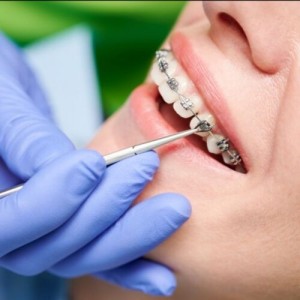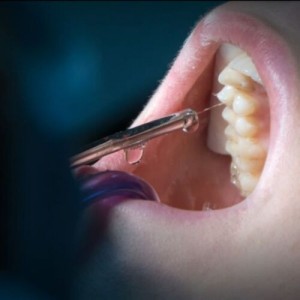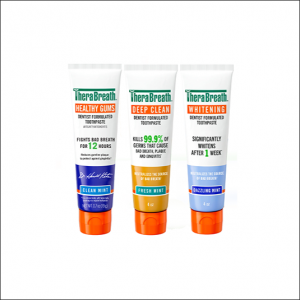
Could prolonged breastfeeding reduce the risk of developing cavities?
By Sabina Mastrangelo
Getting children used to not consuming foods with added sugars and promoting breastfeeding are two strategies to focus on in the first two years of life, to reduce the risk of developing dental caries.
The World Health Organization (WHO) recommends exclusive breastfeeding for the first six months of life. Subsequently, after the introduction of solid foods, breastfeeding should be continued, up to two years of age or more. The WHO also suggests not giving children foods with added sugars before the age of two.
High sugar consumption determines the formation of a cariogenic biofilm, known as bacterial plaque. Breast milk is modified by plaque and contributes to the demineralization of dental enamel, but it is the consumption of sugars that triggers this process.
The frequency with which plaque is exposed to breast milk is probably the main risk factor for dental caries observed in breast-fed infants at 12 months of age. At the same time, however, as researchers point out, breastfeeding for 24 months reduces the consumption of ultra-processed foods or foods with added sugars, acting as a protective factor against dental caries.
Materials and methods
A study led by Jenny Abanto of the University of Catalonia in Barcelona, published in Community Dentistry and Oral Epidemiology in November 2022, involved 800 children who consumed added sugars to their diet and whose breastfeeding was discontinued early.
Information on food consumption was obtained from interviews with mothers or caregivers, who described what the children had eaten in the previous 24 hours.
The researchers also recorded the amount of sugar added to several types of food and drinks, such as tea, juice or milk.
Results
Of the children involved in the study, 22.8% developed dental caries. In addition, the results showed that only 2.8% of the children participating in the research had never consumed sugar before their second birthday, while 66.7% had consumed foods with added sugars more than five times a day. Finally, only 7.6%, had not consumed added sugars in the first year of life.
The frequency of dental caries varied according to the economic status and level of education of the children's families of origin, with the highest values among children from families in poor economic conditions and less educated.
Conclusions
According to the study, the effect of prolonged breastfeeding on the increased risk of dental caries was slightly mediated by sugar consumption. Early feeding practices for caries prevention and promoting breastfeeding while avoiding sugar consumption should be targeted in the first two years of life.
Abanto said that "even if the teeth affected by caries are baby teeth, dietary habits such as consuming large amounts of sugar in childhood, tend to stick around and put you at risk of developing dental caries in the future."
She added that eating habits, in short, are rooted in childhood. "The foods we get used to as children influence their preferences throughout life, so we must avoid the consumption of sugars in the first 24 months of life.”
For more information: "Prolonged breastfeeding, sugar consumption and dental caries at 2 years of age: A birth cohort study."
 Related articles
Related articles
Oral Hygiene & Prevention 20 August 2025
Personal oral hygiene and dental caries: A systematic review of randomised controlled trials
To conduct a systematic review of randomised trials assessing the association between personal oral hygiene and dental caries in the absence of the confounding effects of fluoride.
Pediatric dentistry 08 April 2025
Oral rehabilitation in pediatric dentistry: a clinical case report
Despite the emphasis and effort devoted to preventive dentistry, massive coronal destruction caused by dental caries or trauma is still seen in pediatric dentistry practice today.
Oral Hygiene & Prevention 15 January 2025
The aim of this study was to assess the influence of dietary and hygiene habits on the prevalence and intensity of dental caries.
Those who have had surgical obesity treatment have a higher risk of dental caries than before surgery. They also often experience a general decline in oral health. This has been shown by a thesis...
Despite its reputation as the most widely used restorative dental material currently, resin-based materials have acknowledged shortcomings.
 Read more
Read more
Editorials 10 October 2025
With proud smiles and crisp white coats, ninety-three learners from the DDS Class of 2029 and the International Dentist Pathway Class of 2028 marked the start of their dental careers at the UCSF...
Periodontology 10 October 2025
Continuous professional development (CPD) in Periodontology refers to the overall framework of opportunities that facilitate a life-long learning practice, driven by the learner-practitioner and...
TheraBreath, the #1 alcohol-free mouthwash brand in the U.S.*, has introduced a new line of dentist-formulated, clinically tested toothpastes designed to support professional oral care...
News 10 October 2025
New officers and trustees were installed at the Minnesota Dental Association’s Leadership Conference on September 19 in Minneapolis.
News 10 October 2025
Smartee Denti-Technology today announced that Professor Gang Shen, its Chief Scientist and Executive President of TaiKang ByBo Dental, has once again been named to the World’s Top 2% Scientists...















